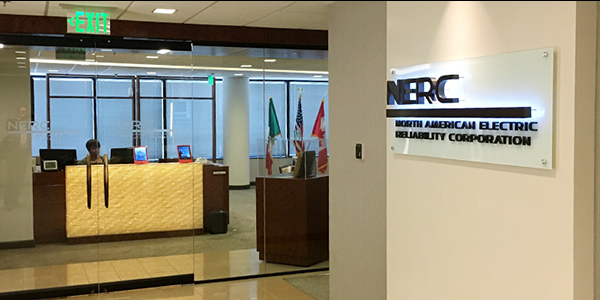NERC and the regional entities pushed back last week on FERC’s proposal to shorten the time between the organization’s performance assessments from five years to three, warning that the change would force it to “redirect staff resources from … issues facing the” bulk power system (RM21-12).
FERC pitched the move in a Notice of Proposed Rulemaking issued in January under the chairmanship of Commissioner James Danly, saying a quicker turnaround would “provide better continuity” in its oversight of the ERO Enterprise and its ability to identify potential performance improvements in a more timely fashion. The NOPR was issued alongside an order for NERC to audit the compliance monitoring and enforcement programs of all REs by June 2023. (See FERC Orders Audits of All REs by 2023.)
Also included in the NOPR was a proposal to allow FERC to request additional information beyond the statutory requirements of the performance assessment; NERC would have to honor any such requests submitted at least 90 days before the assessment’s publication date. The NOPR would also require the ERO to solicit recommendations by industry stakeholders for improvements to its “operations, activities, oversight and procedures.” Any stakeholder comments received would be included in the assessment along with NERC’s responses.
Objections to Compressed Time Frame
In their response, NERC and the REs recognized that the commission’s proposals appeared driven by “effective and efficient communication, coordination, and feedback objectives.” But they said they nevertheless found flaws with each proposal that, taken together, would “place a burden on ERO Enterprise staff … that would outweigh any potential benefits.”
In this regard the enterprise is following a cue provided at FERC’s January meeting by Commissioners Neil Chatterjee and Richard Glick, now the chair. In a joint statement, the two asked specifically for feedback on “potential burdens” that the proposal could impose on the organizations; in his oral comments Chatterjee further expressed concern “that the additional layers of administrative process … may miss the mark.”
The enterprise’s response to FERC echoes this fear, claiming that because of the need to coordinate with the REs, incorporate stakeholder feedback and gain approval from NERC’s Board of Trustees, “a three-year performance assessment cycle would … effectively [require] NERC to prepare an assessment every two years.” In addition, a more restricted time frame “might not enable … a comprehensive review of the myriad of activities and topics” required by the performance assessment.
NERC also objected to the commission’s suggestion that the current schedule does not permit it to conduct active oversight of the enterprise. The organization pointed out that commission staff are “aware of and involved in” the activities of the enterprise at many levels, from standards development teams, to the quarterly meetings of the REs’ boards of directors and of NERC’s board and Member Representatives Committee.
The enterprise also submits Annual Business Plan and Budget filings to FERC and collaborates with commission staff on their drafting, along with submitting proposed reliability standards for approval and incorporating changes requested by the commission, the organizations noted. These “constant communication and feedback loops” could be disrupted by a shorter assessment time frame that distracts NERC staff from collaboration efforts, making the proposal not just unnecessary but potentially harmful, they said.
ERO Open to Other Proposals
FERC’s proposal of a mandatory solicitation of stakeholder comments by NERC met with similar objections. The organization pointed out that not only does it post drafts of the assessments for public comment three months prior to their submission, it also “provides extensive opportunities for stakeholder feedback” on an ongoing basis, “including areas for improvement.” Interested parties can provide their comments by participating in NERC’s committees or through the MRC.
“The NOPR does not explain the basis of its proposal for a separate stakeholder comment process discrete from all other existing robust feedback mechanisms,” the ERO Enterprise said. However, NERC did leave the door open for compromise by suggesting that it could start the comment period for the assessment earlier or provide stakeholders more time to comment.
NERC also signaled its willingness to accommodate the commission’s proposal to require additional specific information ahead of the assessment’s publication, admitting that “it could help illuminate particular areas of interest.” Although the organization maintained that 90 days was not sufficient notice, it suggested six months would give its staff enough time to incorporate the commission’s requests into the document.
Finally, NERC and the REs pointed out that FERC had not indicated when it hoped for the proposed changes to take place and that nearly two years have already passed since the ERO’s last performance assessment. (See NERC Wins Another 5 Years as ERO.) Noting that many scheduling aspects of the next assessment — currently scheduled for 2024 — have already been set, the enterprise strongly urged FERC to delay any changes until after it is finished.





